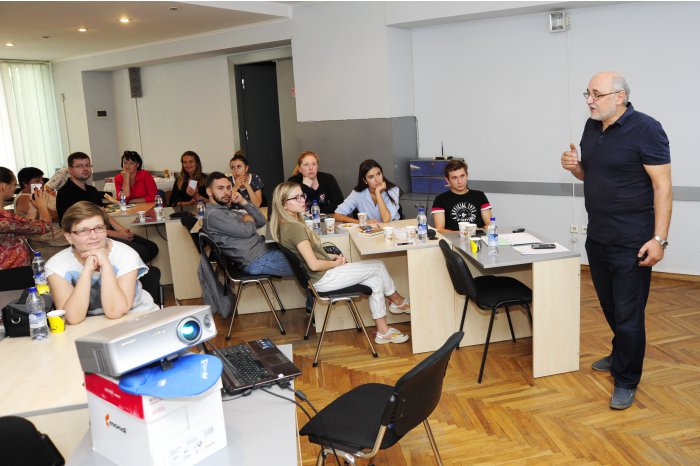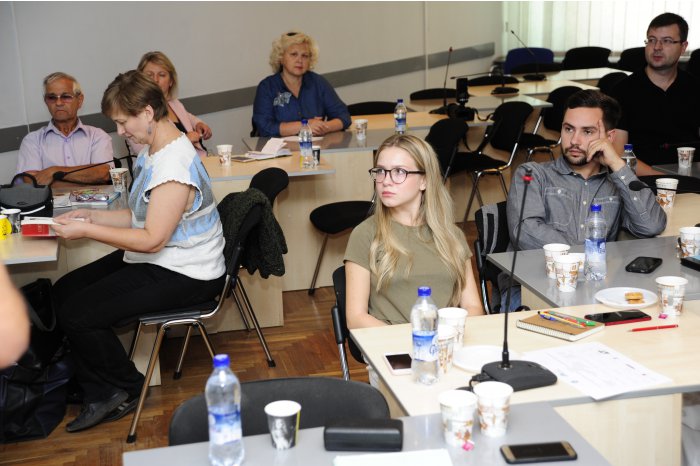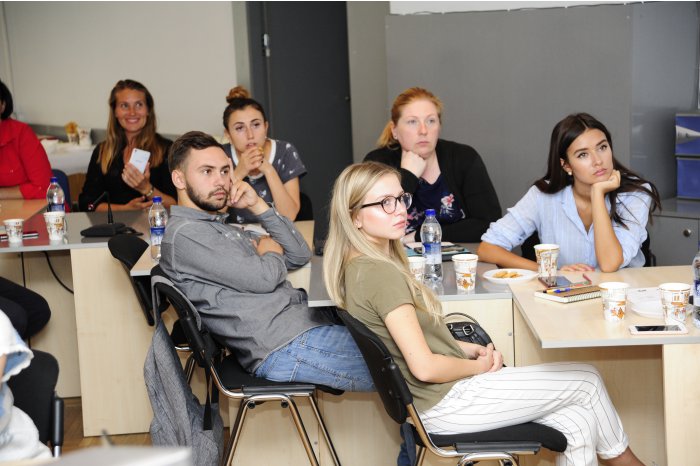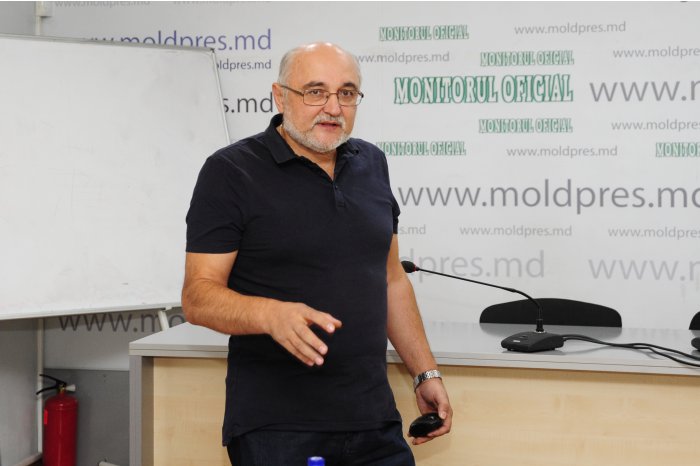Theatre, concerts institutions of Moldova should adapt to market economy conditions
20:46 | 11.09.2019 Category: Culture
Chisinau, 11 September /MOLDPRES/ – The theatrical – concert institutions must adapt to the conditions of market economy and become components of cultural industries. They continue to operate according to principles taken from the Soviet period. Also, it will have to be modified financing system, as the state cannot meet the financial needs of these institutions.
Such an approach to the problem of functioning of theatrical – concert institutions was launched, on Wednesday, 11 September, during IVth round of public discussions, entitled: Wednesday of cultural policies for Moldova, organised by the Centre for Cultural Policies with the support of Visegrad Fund.
Within it, the director of Centre for Cultural Policies, Veaceslav Reabcinschi, mentioned that the institution headed by him has implemented project: The cultural policies for Moldova, which aims to develop a set of proposals for the efficiency of cultural policies in Moldova in the context of association with EU. and adoption of development strategy – Moldova 2030.
According to Veaceslav Reabcinschi, the cultural – concert institutions lack a trained staff in domain, capable of practicing efficient management.
”Currently, Moldova has 22 theatrical – concert institutions, one of them – in the south of the country, two – in the north and another – in Gagauzia. The headquarters of the National Philharmonic Serghei Lunchevici needs a capital repair, the headquarters of the Musical – Dramatic Theatre B.P. Hasdeu from Cahul is under construction, the epic ethno – folklore theatre does not have a showroom, and the halls of the National Theatre Eugene Ionesco do not meet the requirements of a theatre institution. In 2010 – 2018, the financing of theatrical – concert institutions increased by 40 per cent. Also, the number of performances and concerts decreased from 3,182 to 2,096, and the number of spectators – from 536,000 to 488,000. Today, the viewer has to choose from. This is why, for them, you have to fight, and for it, the theatres need to have strategic development plans and marketing plans, by whom and how the respective institutions work. Another issue is the lack of private initiative in the field. We have only two good examples – Theatre Geneza Art and Teatrul de buzunar (the Pocket Theatre). They demonstrate that a well – organised and spectator – oriented private initiative can survive even under the conditions of Moldova”, stressed the director of Centre for Cultural Policies.
The following public discussions will take place on 18 September, in the conference room of AIS MOLDPRES and they will refer to the need for active participation of civil society in elaboration and implementation of cultural policies. "How do we ensure the effectiveness of theatre and concert institutions and how do we develop particular initiatives in this area?" – these and other issues will try to answer the participants of discussions of next week.
Project: The cultural policies for Moldova is implemented by the Centre for Cultural Policies and Institute of Legal, Political and Sociological Research with the support of the Visegrad Fund, in partnership with Budapest Observatory (Hungary), Adam Mickiewicz University (Poland), Creative Industry Forum (Slovakia) and Institute umění – Divadelní ústav (Czechia).




